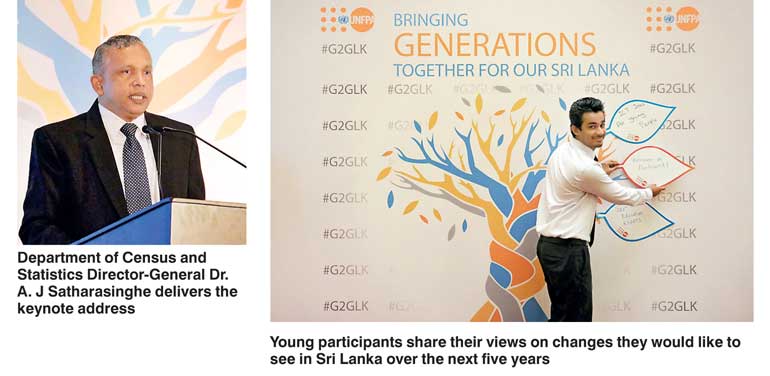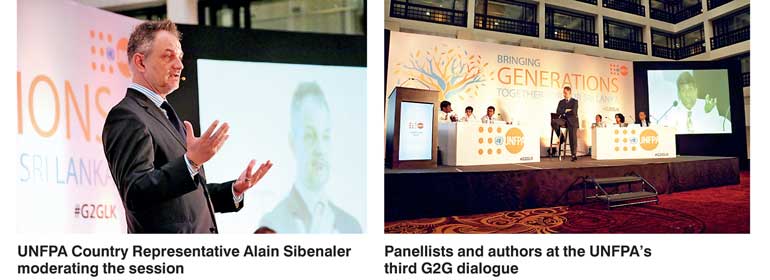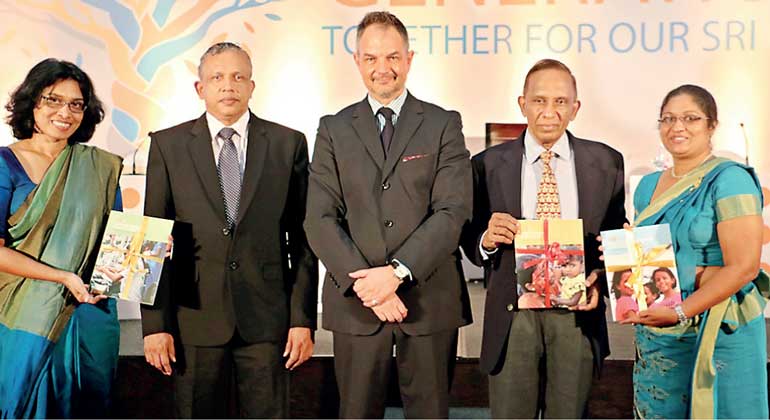Monday Feb 23, 2026
Monday Feb 23, 2026
Thursday, 15 December 2016 00:01 - - {{hitsCtrl.values.hits}}


 Sri Lanka has heard the voice of the experienced; the older generation. We have learnt from their wisdom. Sri Lanka recognises the energy of young people; the energy for innovation and social change.
Sri Lanka has heard the voice of the experienced; the older generation. We have learnt from their wisdom. Sri Lanka recognises the energy of young people; the energy for innovation and social change.
This is why the United Nations Population Fund (UNFPA) in Sri Lanka has been facilitating a series of generation-to-generation dialogues (G2G) to bring three generations together to collectively voice opinions towards Sri Lanka’s socio-economic development. The inter-generational dialogues aim to create an inclusive platform for both young and old, to contribute towards maximising the demographic dividend in support of Sri Lanka’s middle income status.
A ‘demographic dividend’ is the economic growth potential that can result from shifts in a population’s age structure, mainly when the share of the working-age population (15 to 64 years) is larger than the non-working-age share of the population (14 years and younger, and 65 years and older). Sri Lanka’s population has increased three-fold since 1871 and the country is currently within the window of a ‘demographic dividend’ where the population is shifting from having a high number of young persons to a greater number within the working age population.
The third of the series of UNFPA’s G2G dialogues, titled ‘Shifting Demographics: Development Opportunities for Sri Lanka, was held on 9 December. The dialogue focused on the areas of Education, Labour and Fertility, where three Thematic Reports based on the statistics of the 2012 National Population and Housing Census were launched.
Delivering the Keynote Address, Director-General of the Department of Census and Statistics, Dr. A.J Satharasinghe, said: “The Department of Census and Statistics takes various steps to disseminate key findings of its censuses and surveys. These thematic publications are an example of our efforts to disseminate findings of the Census on Population and Housing 2012, which was a landmark event, as it covered the entire country after 30 years. I hope these reports will be used as reference guides and tools by policymakers and decision makers in the country.”
Speaking at the event UNFPA Country Representative for Sri Lanka and the Maldives Alain Sibenaler, said: “With such rapidly shifting population dimensions of Sri Lanka, there is a need for continuous research and evidence to formulate short, medium, and long term development strategies which analyses and documents demographic shifts. Making information and data accessible to the public is a first step towards building awareness on trends and highlighting gaps that need to be addressed for Sri Lanka to benefit from development opportunities.”
Attendees at the event included Government officials, members of the diplomatic community, civil society representatives, academia, private sector leaders, industry experts, and media.